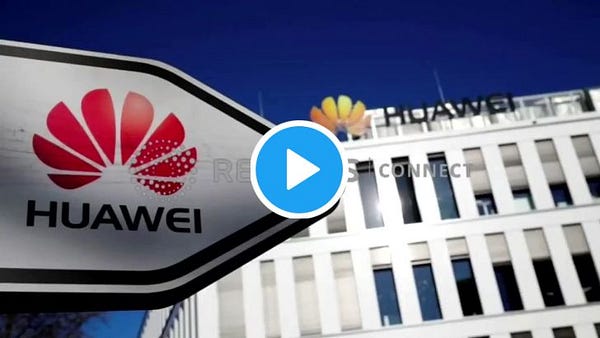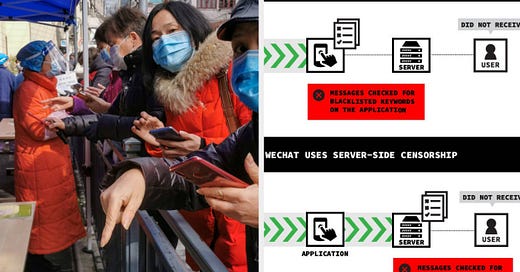The China Letter: March 4, 2020
The censored contagion
Citizen Lab, a research group based in Toronto, released a report on how Chinese social media firms managed information about COVID-19. WeChat and YY were the platforms caught censoring keywords related to the outbreak. But amidst claims of a cover-up going back to December, the country is trying to promote a lack of impact:
Nonetheless, some stories about life under lockdown due to the coronavirus are being told, like the Wuhan resident who remained anonymous in sharing their story with NPR:


COVID-19’s biggest bite


This story from the Wall Street Journal (which can be read for free at this link) examines how Apple employees resistant to the technology giant’s dependency on China were rebuffed by senior managers—who are now grappling with a supply chain crisis. Apple figured in another COVID-19 story, regarding a resurgent simulation game:


The company removed the eight-year-old Plague Inc. from the iOS app store in China, after Beijing’s internet watchdog determined the content was illegal there, possibly because of the tutorial’s starter country, for a game that takes players around the globe.
Huawei’s own hand in Iran


Packing lists reviewed by Reuters provide new evidence that Huawei was involved in alleged trade sanctions violations when the company sent Tehran some computer equipment made in the U.S. The discovery bolsters the allegations against Huawei. Meanwhile, the CIA is accused of an 11-year hacking campaign that targeted China.
Hong Kong protests go on
Jimmy Lai, publisher of the newspaper Apple Daily, was charged with illegal assembly over a pro-democracy march in Hong Kong last summer. Two opposition politicians were also arrested, days after Swedish bookseller Gui Minhai was sentenced to 10 years in prison for “providing intelligence” via Hong Kong:
The view from Australia


This report from the Australian Strategic Policy Institute sheds more light on the treatment of detained Uighur Muslims in China, beyond surveillance and internment camps. Now, a total of 83 companies have been implicated in accusations of forced labour: at least 81,000 appear involved in involuntary production for global brands:


Lacoste-branded gloves were made in a Chinese internment camp, according to a claim by the Worker Rights Consortium. (The designer has condemned this practice.)
The last words, for now
Chinese news agencies have been ordered to cut their U.S. staff by 40 per cent, two weeks after Beijing expelled three reporters from the Wall Street Journal. Secretary of State Mike Pompeo said it’s about levelling numbers between nations, rather than retaliation. Naturally, state-run Chinese media denounced the move as prejudicial:













